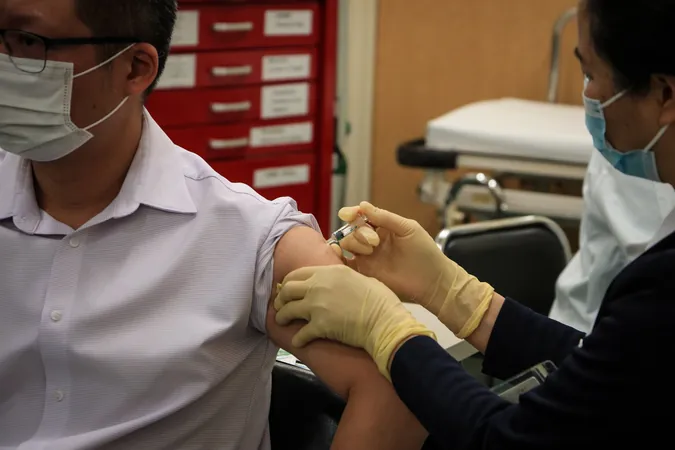
Urgent Action Required: Vaccination Challenges Threatening Global Health
2024-10-07
Author: Yu
Vaccines have undeniably transformed human health, eclipsing many other medical advancements during the 20th century, including sanitation and access to clean water. From the complete disappearance of smallpox in 1980 to the groundbreaking development of mRNA vaccines during the COVID-19 pandemic, vaccinations have saved millions from premature deaths and prevented countless hospitalizations across various demographics.
However, this progress is now at risk. A troubling trend has emerged over the past decade, with vaccination rates plummeting in the United States and beyond, threatening the remarkable health benefits that vaccines provide. Research led by scholars from Florida Atlantic University's Schmidt College of Medicine has identified multiple challenges facing adult vaccination efforts, highlighting the urgent need for intervention.
As stated by lead researcher Dr. Charles H. Hennekens, the resilience of public health systems, advancements in vaccine technologies, and the commitment of healthcare providers could spur a much-needed positive shift in vaccination rates. Nonetheless, he warns that simply increasing these rates may not suffice. Effective surveillance, rapid detection of cases, and prompt immunization of close contacts are crucial components of a comprehensive strategy, alongside traditional health measures like social distancing and masking.
Healthcare providers are facing significant hurdles in immunizing adults against critical infections such as COVID-19, respiratory syncytial virus (RSV), and influenza—especially among high-risk groups like the elderly and immunocompromised. Furthermore, a new and highly virulent strain of influenza (H5N1) recently identified in China has raised alarms among health officials, prompting urgent calls for vigilance.
The pneumococcal vaccine, demonstrated to be safe for adults aged 18 to 79—including those over 80—offers vital protection for the elderly and those vulnerable to pneumonia. Additionally, shingles, a disease affecting one in three individuals over 65, emerges from a reactivated chickenpox virus and can lead to severe complications. Fortunately, the shingles vaccine is both effective and approved for those 50 and older.
Despite measles being eradicated in the United States in 2000, its resurgence looms as recent outbreaks in low-vaccination areas have sparked concerns over declining herd immunity. The World Health Organization (WHO) reported that by mid-2023, 116 of 195 countries had observed falling vaccination rates for measles. This troubling trend is compounded by the fact that vaccinations since 1974 have reportedly prevented approximately 154 million premature deaths globally.
Furthermore, the WHO's recent declaration of mpox as a global public health emergency has brought attention to the continuing risks of infectious diseases once thought controlled. While immunization efforts against smallpox reduced mpox cases substantially, declining vaccination rates weaken this defense and, coupled with emerging variants, increase mortality risks.
To combat these pressing challenges, experts emphasize the need for enhanced vaccination campaigns and public awareness. Global vaccination initiatives face hurdles, including inadequate supply chains and difficulty reaching vulnerable populations, particularly in regions like sub-Saharan Africa.
In summary, ongoing efforts among healthcare professionals and advancements in vaccine technologies hold promise for addressing and potentially eradicating many infectious diseases. However, achieving these aspirations will rely on sustained collaboration, heightened public engagement, and a relentless focus on increasing vaccination rates. Failure to act could lead to dire health consequences on both a domestic and global scale.


 Brasil (PT)
Brasil (PT)
 Canada (EN)
Canada (EN)
 Chile (ES)
Chile (ES)
 España (ES)
España (ES)
 France (FR)
France (FR)
 Hong Kong (EN)
Hong Kong (EN)
 Italia (IT)
Italia (IT)
 日本 (JA)
日本 (JA)
 Magyarország (HU)
Magyarország (HU)
 Norge (NO)
Norge (NO)
 Polska (PL)
Polska (PL)
 Schweiz (DE)
Schweiz (DE)
 Singapore (EN)
Singapore (EN)
 Sverige (SV)
Sverige (SV)
 Suomi (FI)
Suomi (FI)
 Türkiye (TR)
Türkiye (TR)